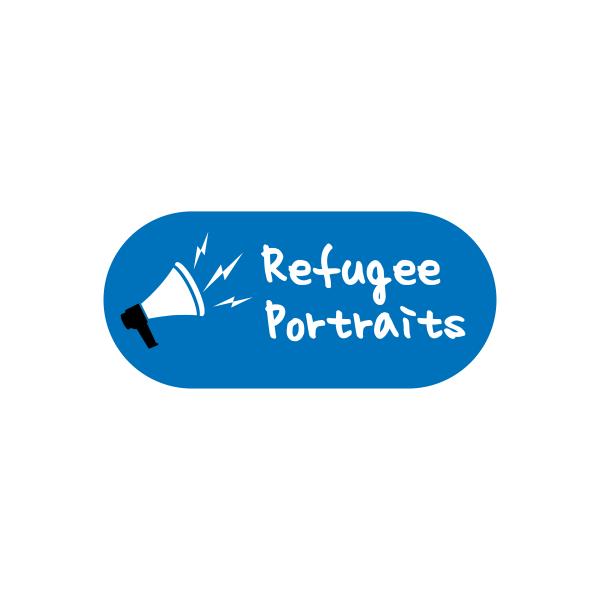
On 16 and 17 July, the La Tour Genève Triathlon took place. For this 32nd edition, Switzerland for UNHCR was pleased to be once again the charity partner of this event where more than 3,150 people swam, ran and cycled in solidarity with people forced to flee around the world. To underline this commitment, La Tour Genève Triathlon invited a new sponsor to the event: Masomah Ali Zada. We took advantage of her presence to ask her a few questions about her background and the message that her presence conveys.
My name is Masomah Ali Zada, I am 25 years old, I come from Afghanistan and I participated in the Tokyo 2020 Olympic Games with the refugee team in the cycling discipline.
Today I live in France, where I am a 3rd year undergraduate student. Next year I will start my master's degree.
When I was in Afghanistan, I played different sports, but always wanted something different. When I tried cycling for the first time, I saw the difference between indoor sports and outdoor sports, where you are exposed to the gaze of people.
For most, it was very new. The reactions we received ranged from those who accepted us, to those for whom seeing a woman on a bike was unacceptable. Some people wanted to stop us, saying that we were against religion, and against culture, when my aim was just to normalise cycling as a sport for girls in Afghanistan. It became more and more dangerous, which reinforced for me the image of cycling as a symbol of freedom for Afghan women.
Cycling became a real passion, and despite the danger, I decided to continue cycling and be a good example for other women. I wanted to show that it was okay for a woman to ride a bike, and set myself the goal of normalising the sight of a woman on a bike in the streets of Kabul.
Participating in the Olympic Games has always been a dream for me, but an impossible dream. In addition to the security problems of cycling in Afghanistan, there was also a lack of infrastructure that did not allow me to make progress. Even when I arrived in France, this dream still seemed unattainable, because as a refugee it was impossible for me to represent either Afghanistan or France.
The Olympic Refugee Team programme has enabled me and many other refugee athletes around the world to participate in the Olympic Games, and I am very grateful to the International Olympic Committee for this opportunity.
It's the first time I've been the patron of an event like this, and it's really a great honour. I never thought that I would one day be a patron of a big event, and I thank the organisers and Switzerland for UNHCR for inviting me. I believe that beyond my passion for cycling, I also represent here a symbol of freedom for women, and a message of hope for refugees around the world.
I come from Afghanistan, and despite all the problems we have there, including discrimination against women, war, insecurity, economic crisis and all the problems that have been added with the arrival of the Taliban to power, it is still my country. I was born there, and I love this country very much. I hope that one day there will be more freedom, especially for women to go to school, to play sports, to work and to make society advance. I hope that all women will be able to exercise their basic human rights, because everyone is entitled to them.
I still have this hope in my heart that once the Taliban are gone, I will be able to go back to my country, to a country that is free for everyone, and without wars.
I am now finishing my degree in civil engineering, with a specialisation in urban engineering.
Since I arrived, I haven't stopped trying to improve myself. I think it's the responsibility of everyone, especially refugees, to constantly strive to improve themselves, to not give up and to try to integrate into society as much as possible - either through studies, work or sports. We have to try to progress and help the society that has helped us to be safe. Host countries open their doors to us and give us a lot at a critical moment in our lives, and it is also our responsibility to give back as best we can.
Otherwise, I obviously also want to participate in the Olympic Games in Paris in 2024!
I would say that we should not put everyone in the same basket. Initially, I arrived in a small village where there were hardly any foreigners, and we were the first refugees there. The villagers were extremely warm to us, welcomed us with open arms and helped us with administrative tasks and French lessons.
We were new, and foreigners, but they helped us. Some people had prejudices about refugees, and I think in these cases it is also our responsibility to be effective for society, to set an example, to show our willingness to integrate and contribute.
You have to understand that as refugees we did not want to go to another country. It was not our choice to leave, we were forced to. If people see the effort we make to integrate, they will accept us. The responsibility is therefore on the host community's side as well as on the refugees' side.
The world will progress if we accept others, and if we take a humane attitude towards each other. We have to accept differences and show solidarity - for me, this is what makes us human.